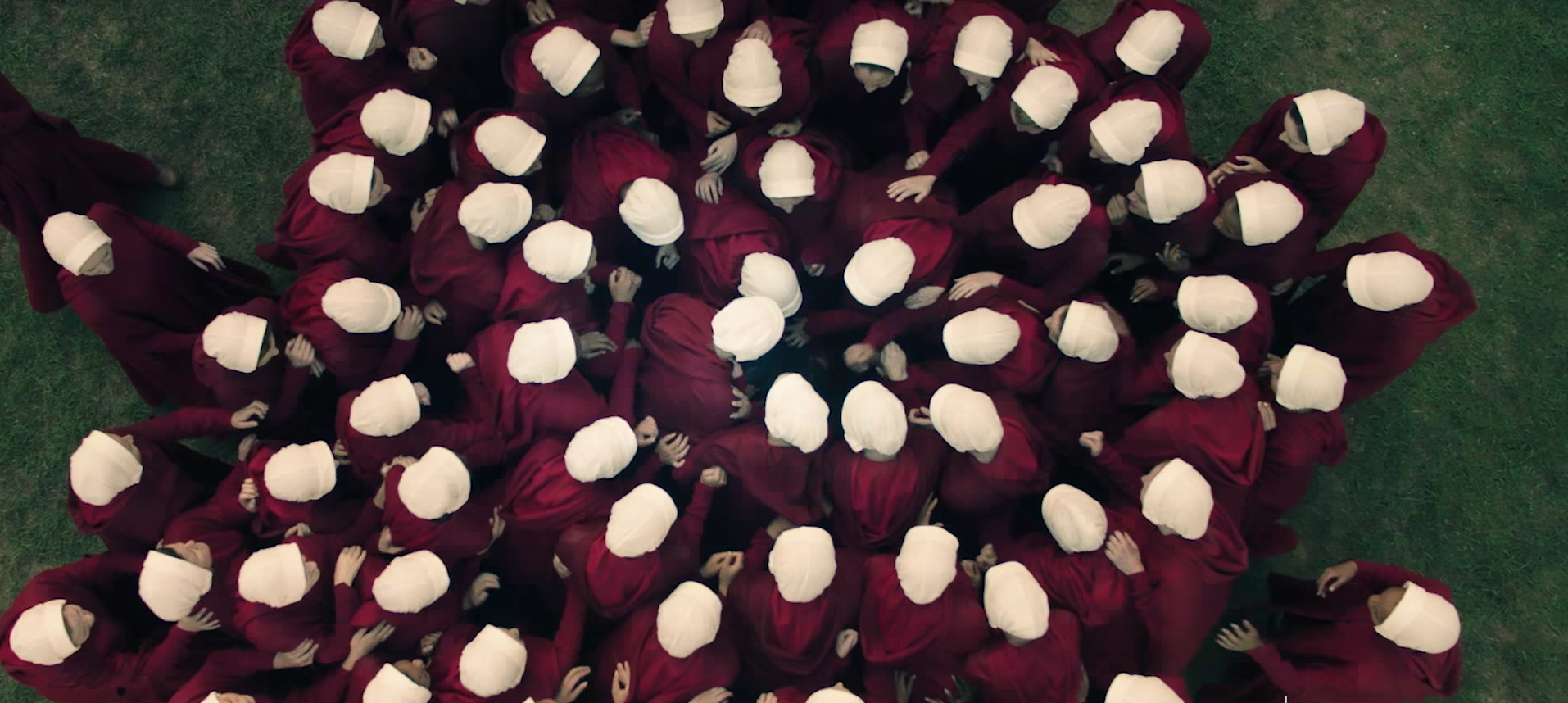There have been many times when I have felt fear while watching a movie or TV show. Of course fear is expected while watching a horror film, with supernatural beasts or bloodthirsty murderers eliciting momentary terror. Then sometimes there’s the more subtle fear felt while watching a romantic drama, worrying that the star couple won’t make it out of the movie together, or will be forced to live without each other.
While these fears are real, more often than not they’re temporary. Only once in my life have I truly felt a prolonged fear when watching a piece of media, and conveniently enough it happened last week while watching The Handmaid’s Tale. If you want to know what real fear is, try sitting down to watch a show about a dystopian, non-secular authoritarian regime promoting systematic rape and slavery, while at the same time receiving a CNN notification that health care may soon be dead and churches now have political power. More than a little terrifying, to say the least.
That’s exactly what The Handmaid’s Tale is supposed to do, though — it’s meant to incite fear. Based on Margaret Atwood’s award-winning dystopian novel, Hulu’s The Handmaid’s Tale is set in a world where birthrates have plummeted, causing violent chaos that eventually gives way to a non-secular Christian nation. Scripture is followed in the most literal of senses, making way for slavery, absolute patriarchy and systemic rape. At the center of it all stands Offred, a handmaid whose sole job is to provide a body for her assigned Commander to procreate with. Played by Elisabeth Moss, Offred is a gateway through which the audience sees this terrifying world, made terrifying because of the undeniable slivers of reality found within it.
Very rarely do I find a show that I truly believe most people would benefit from watching, but The Handmaid’s Tale is without a doubt one of them. To begin with, the cast is phenomenal. Moss as Offred is absolutely devastating to watch, especially since the audience keeps seeing such radical shifts between what Offred was like before the regime takeover and then afterwards. Dexter‘s Yvonne Strahovski is also amazing as Serena Joy, capturing both the icy heartlessness of a Commander’s wife while also occasionally showing her own doubts about the system she lives in. And of course, Orange is the New Black‘s Samira Wiley is fantastic, creating a complex, intangible air around Moira that leaves audience members wondering whether we should be rooting for her.
Although the cast is absolutely stellar, the real power of this show comes from its relevance in the United States’ current political climate. There’s been a lot of discussion lately surrounding the idea that George Orwell’s 1984 most accurately sums up current attitudes in our government, specifically pertaining to the ideas of Big Brother and senseless conformity. While that comparison does have its merits, Atwood’s The Handmaid’s Tale is without a doubt just as much of a representation of our current social climate, if not more. The show is practically dripping with feminism, providing an example of an alternative universe where pro-lifers, rape culture and patriarchal power structures thrive. Offred’s reality and ours are, in some ways, quite similar, differing only in the levels of extremism.
All that being said, it should be noted that The Handmaid’s Tale is by no means an easy show to watch. There’s definitely no small amount of violence, although the show does a good job making sure situations aren’t horribly graphic. Each episode is thoroughly emotionally draining, which makes it hard to binge-watch. But it’s the emotional response that makes this show crucial. Because no, it doesn’t tell a happy-go-lucky story, where everyone is at peace with what’s going on around them. It’s dark, violent and raw, but above all else, it’s fear-inducing. That’s not necessarily a bad thing though — after all, sometimes it takes a little fear for people to wake up.



